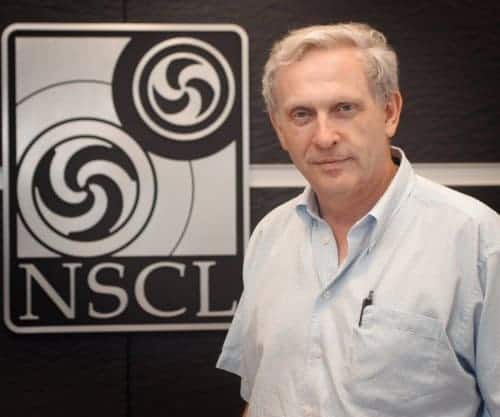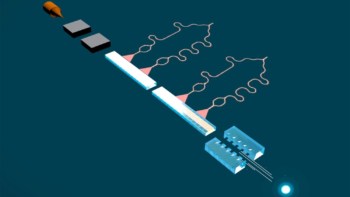
will take charge of FRIB
The US Department of Energy (DOE) has chosen Michigan State University to build a Facility for Rare Isotope Beams (FRIB), which will generate isotopes that are only known to exist in exploding supernovae. The facility, expected to be completed within ten years at an estimated cost of $550 million, will provide insights into the forces between protons and neutrons — and could lead to applications in materials science and medicine.
Michigan State (MSU) won the contract against tough competition from the Argonne National Laboratory. A panel of academic and government experts appraised both institutions’ proposals. “Both applicants fully addressed all aspects of the rated criteria, and demonstrated a very good understanding of the major issues,” a DOE statement noted. “However, MSU’s application provided the strongest proposed budget that was reasonable and realistic.”
One key factor in the choice was the university’s offer to share in some of the costs of the project, thereby giving taxpayers some financial relief. “We’re very excited for the science,” Michigan State’s associate director of research Brad Sherrill told physicsworld.com. “It will be a challenge but we’re up to it.”
Researchers will hit the ground running
The facility will become part of MSU’s National Superconducting Cyclotron Laboratory (NSCL), whose head, Claus Konrad Gelbke, will take charge of the project. FRIB will be based on a high-intensity heavy-ion linear accelerator that will give scientists the ability to experiment with fast, stopped, and reaccelerated beams. NSCL will continue to operate during FRIB’s construction.
I’m so thrilled that a decision has been finally made, the community has been working for 19 years to get this Rick Casten, Yale University
By 2010, it will receive a scheduled upgrade that will include a new low-energy linear accelerator for beams of rare isotopes. “The research community will hit the ground running when FRIB turns on without missing a beat,” Gelbke said.” According to DOE, the completed facility will provide research opportunities for about 1000 scientists and graduate students.
Not surprisingly, Argonne lamented the choice. “We are disappointed in the decision not to site FRIB here,” the lab said in a statement. “Argonne has been a pioneer in accelerator physics for decades and much of the science for FRIB was developed at the laboratory.” However, the overall physics community welcomed the fact that DOE decided to award the contract after several years of vacillation. “I’m so thrilled that a decision has been finally made,” said Yale University physicist Rick Casten. “The community has been working for 19 years to get this.”
However, DOE’s current budget does not include a provision for FRIB because Congress failed to agree on a budget for the current financial year, which began on 1 October. But, the fact that the DOE has made the announcement indicates confidence that FRIB will receive the necessary financing.



